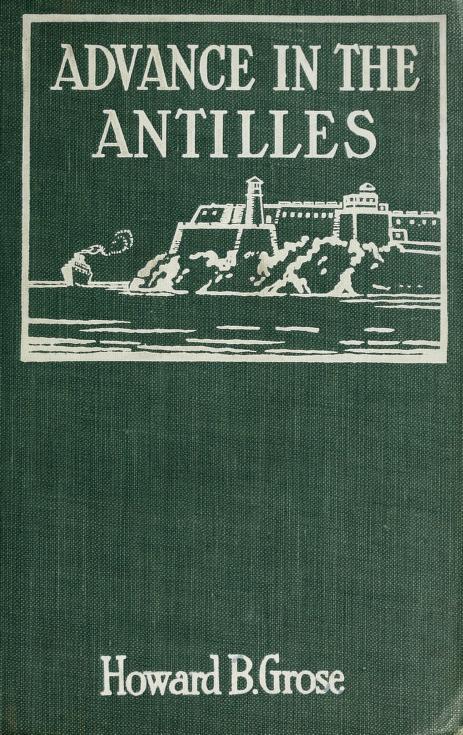
This book, Advance in the Antilles: the new era in Cuba and Porto Rico, was written in 1910 by Benjamin Howard Grosse. As explained in the preface, the purpose of this book is to educate American citizens about the newly acquired islands of Cuba and Puerto Rico. Specifically, Grosse wants to focus on “the past and present of the islands and to show what has been accomplished and what it is hoped to accomplish through the missionary agencies sustained by American Protestants” (Grosse xi-xii). This excerpt is specifically about how the Protestant denominations decided to divide up the island of Puerto Rico in order to evangelize the island.
Throughout this excerpt, Grosse uses kind and generous language when talking about the missionary efforts in Puerto Rico. For example, he calls the transition from Spanish to American rule “the day of liberation” (Grosse, 208). Additionally, he refers to bringing Protestantism to Puerto Rico as a “responsibility and opportunity” (Grosse, 208). From these examples, we as readers are able to see that Grosse, an American author, is sympathetic to the missionary cause in Puerto Rico, and sees it as an opportunity for American imperial expansion. Like Down in Porto Rico, this book is an example of how the United States saw missionary work as a method of Americanization that will help incorporate Puerto Rico into the United States.
“Then came the day of liberation, the advent of a new government, the era of religious liberty and missionary effort. As soon as the hold of Spain, was broken in the Philippines, Cuba, and Porto Rico, the home and foreign missionary boards of the United States recognized the fact that a new responsibility and opportunity confronted our people. Various Protestant denominations sent representatives to look over the fields with a view to establishing missions. Most fortunately, it dawned upon the leaders that this work in comparatively small and virgin fields ought to be done by some arrangement that would avoid overlapping or friction and secure the speedy proclamation of the gospel to all the people. The principle of Christian comity came into play, with the happiest results. These are the general terms of agreement : (1) San Juan and Ponce, the two chief cities, to be open to all denominations for whatever work they desire to initiate; (2) any denomination that first starts work in a field shall be left in undisturbed possession unless the town grows to exceed 7,500 population, in which case others may enter if they feel called upon to do so; (3) a division of the island, by which the Presbyterians of the North became responsible for the evangelization of the western section, the Congregationalists, for the eastern section, the Baptists and Methodists for the central section, the United Brethren in the Ponce district, with due provision also for other denominations. The Protestant Episcopal Church, not becoming a party to the arrangement, but working in harmonious relations, holds the island as the Missionary District of Porto Rico, with a resident bishop.” (Pages 208-209)
Grosse, Benjamin Howard. Advance in the Antilles: the new era in Cuba and Porto Rico, University of California Libraries, 1910. https://archive.org/details/advanceinantille00gros/page/208/mode/2up